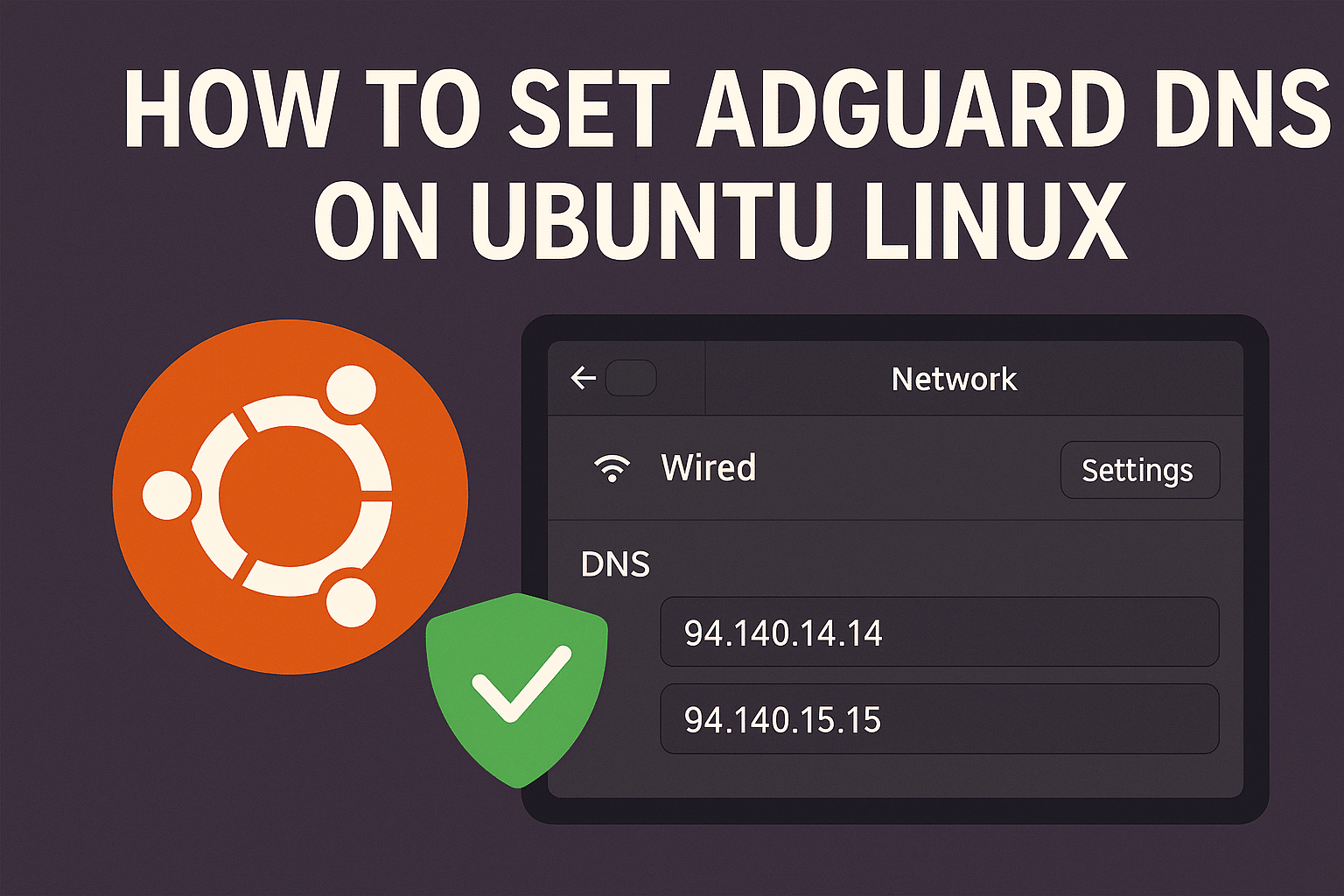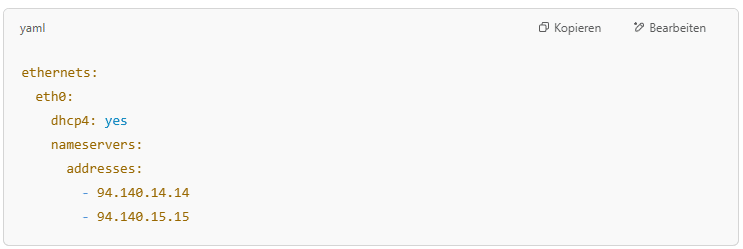
Sure! Here’s a blog-style post on how to set up AdGuard DNS on Ubuntu Linux, along with 4 short FAQs and a meta description.
🛡️ How to Set AdGuard DNS on Ubuntu Linux (Step-by-Step)
AdGuard DNS is a free, privacy-focused DNS service that blocks ads, trackers, and malicious websites at the DNS level. If you’re using Ubuntu, setting it up is straightforward and can enhance your browsing privacy and speed. Here’s how to do it in just a few steps.
🔧 Method 1: Set AdGuard DNS via Network Manager (GUI)
If you’re on Ubuntu Desktop:
-
Open Settings → Network → Wired/Wi-Fi
-
Click the ⚙️ Settings icon of your active network.
-
Go to the IPv4 tab:
-
Set Method to “Automatic (DHCP) addresses only”
-
In DNS, enter:

94.140.14.14, 94.140.15.15
-
-
Do the same in the IPv6 tab (optional):
2a10:50c0::ad1, 2a10:50c0::ad2 -
Click Apply and restart your connection.
🖥️ Method 2: Set AdGuard DNS via Terminal (for Ubuntu Server)
If you’re on a server or prefer the terminal:
-
Open terminal and edit the Netplan config:
sudo nano /etc/netplan/*.yaml -
Under the
ethernets:section, add the DNS like this:ethernets: eth0: dhcp4: yes nameservers: addresses: - 94.140.14.14 - 94.140.15.15Replace
eth0with your actual network interface name if different. -
Save and apply changes:
sudo netplan apply
🔄 Verify the DNS is Active
Run:
systemd-resolve --status
Or:
dig google.com
Check if the DNS servers shown are AdGuard’s IPs.
How to Set AdGuard DNS on Ubuntu Linux (F.A.Q)
What are AdGuard DNS IPs?
Standard (no filtering):94.140.14.14, 94.140.15.15
With Family Protection (blocks adult content):94.140.14.15, 94.140.15.16
Can I use AdGuard DNS with a VPN?
Yes, but the VPN must allow custom DNS configuration.
Does AdGuard DNS slow down browsing?
No, it often improves speed by blocking unnecessary ad/tracker content.
Can I use AdGuard DNS system-wide?
Yes, configuring it via Netplan or /etc/resolv.conf applies it system-wide.






